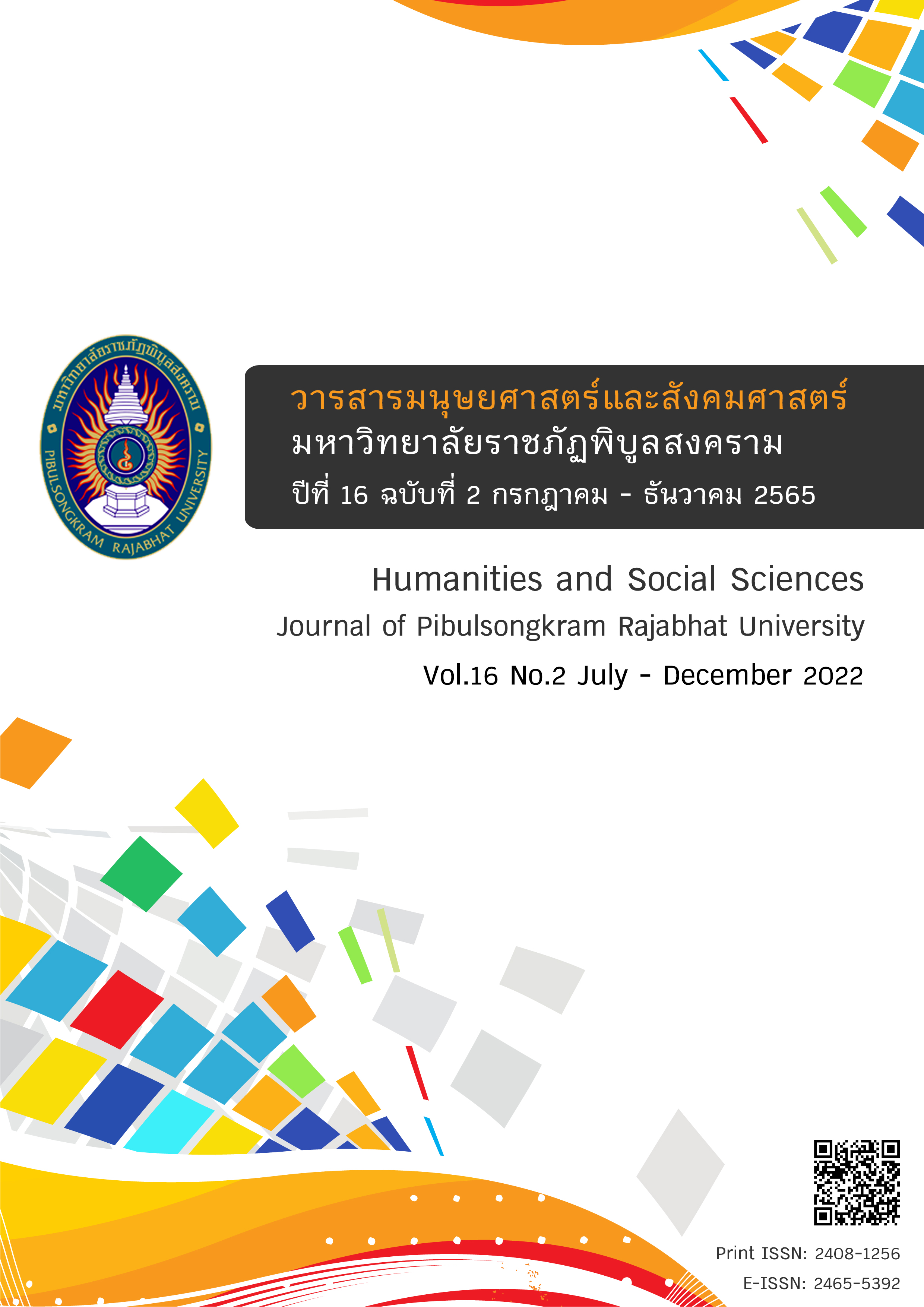L2 Selves Motivation Among Thai Students: A Case study in Sciences, and Humanities and Social Sciences Students at a Government University
DOI:
https://doi.org/10.14456/psruhss.2022.33Keywords:
English language learning, L2 selves motivationAbstract
Learning the English language has become ever more important with the increasing adoption of English as the global language. Students from Thailand should be able to communicate with people from around the world and enhance their employment prospects by being able to speak English. Many researchers have investigated the low levels of competence in English amongst students in Thailand, looking for a cause. One potential cause is low motivation. A five point Likert scale questionnaire and semi-structured interviews were employed for collecting data from 385 participants. Participants were split into two categories, those studying science subjects (125 respondents) and those studying the humanities and social sciences (260). This research demonstrated that there was no difference between students in sciences and those in humanities and social sciences in terms of learning achievement, strategies for learning languages, L2 selves, or contextual factors. Additionally, all the factors seem to have a significant relationship with each other, meaning that when one has significance, the others will also. Qualitative data demonstrated that students who achieve well in English are in the habit of regularly practicing their English skills, both in the classroom and elsewhere; students who do not achieve so well regard English as simply an academic subject and have no desire to practice outside the classroom, although they do accept English when it is involved in entertainment.
References
Aquino, A. C., Cabarrubias, A. Y., Park, T. Y., Rabang, R. V., Rafael, K. J., Yogaratnam, J. M., & Oringo, F. (2016). Demotivating Factors In Learning The English Language. In Presented at the DLSU Research Congress 2016 De La Salle University. Manila: Philippines.
Barrett, P. (2007). Structural equation modeling: Adjudging model fit. Personality and Individual differences, 42(5), 815-824; https://doi.org/10.1016/j.paid.2006.09.018
Bollen, K. A. (1989). Structural Equations with Latent Variables. John Wiley & Sons.
Dornyei, Z. (2005). The psychology of the language learner: Individual differences in second language acquisition. New Jersey: Mahwah.
Dörnyei, Z. (2009). The L2 motivational self system. Motivation, language identity and the L2 self, 36(3), 9-11.
Dörnyei, Z., & AL‐HOORIE, A. H. (2017). The motivational foundation of learning languages other than global English: Theoretical issues and research directions. The Modern Language Journal, 101(3), 455-468.
Dörnyei, Z., Csizér, K., & Németh, N. (2006). Motivation, language attitudes and globalization: A Hungarian perspective. Multilingual Matters.
Gardner, R. C. & Lambert, W. E. (1972). Attitudes and motivation in second language learning. Newbury House Publishers.
Hair, J., Black, W., Babin, B., Anderson, R., & Tatham, R. (2006). Multivariate Data Analysis (6th ed.). Upper Saddle River, NJ: Pearson Prentice Hall.
Higgins, E. T. (1987). Self-discrepancy: A theory relating self and affect. Psychological Review, 94(3), 319–340; https://doi.org/10.1037/0033-295X.94.3.319
Jung, S. K. (2011). Demotivating and remotivating factors in learning English: A case of low level college students. English Teaching, 66(2), 47-72.
Khajavy, G. H., Ghonsooly, B., Hosseini Fatemi, A., & Choi, C. W. (2016). Willingness to communicate in English: A microsystem model in the Iranian EFL classroom context. Tesol Quarterly, 50(1), 154-180.
Kitjaroonchai, N., & Kitjaroonchai, T. (2012). Motivation toward English language learning of Thai students majoring in English at Asia-Pacific International University. Journal of the Institute for Interdisciplinary Studies, 7(1), 21-40.
Lamb, M. (2009). Situating the L2 Self: Two Indonesian school learners of English. In: Dornyei, Z and Ushioda, E, (eds.) Motivation, Language Identity and the L2 Self. Multilingual Matters, Bristol, 229 - 247.
Markus, H., & Nurius, P. (1986). Possible selves. American Psychologist, 41(9), 954–969; https://doi.org/10.1037/0003-066X.41.9.954
Noom-Ura, S. (2013). English-Teaching Problems in Thailand and Thai Teachers' Professional Development Needs. English Language Teaching, 6(11), 139-147.
Outhaichute, M. P., & Raksasataya, S. (2014). The influential factors of English motivational self system. GSTF Journal on Computing (JoC), 2(4), 49-54.
Oxford, R. L. (1990). Language learning strategies: What every teacher should know. New York: Newbury House/ Harper and Row.
Sariçoban, G., & Saricoban, A. (2012). Atatürk and the history of foreign language education in Turkey. Journal of Language and Linguistic Studies, 8(1), 24–49.
Satta-Udom, S. (2007). A survey of language learning strategies used by first year students at Mahidol University: The impact of field of study (Doctoral dissertation). Bangkok: Mahidol University.
Srinusen, P. (2020). Second Language (L2) Motivation, Language Learning Strategies and Learning Achievement: A Study of Thai University Non-English Majors in Large Classrooms. In the 6th Pibulsongkram National Research Conference. 484-495. Phitsanulok: Pibulsongkram Rajabhat university.
Thonginkam, N. (2003). Failure of the English language education in Thailand. Galaxy: The English Department Journal, 2(1), 6-15.
Yamane, T. (1973). Statistics: an Introductory Analysis (3rd ed.). New York: Harper and Row.
Downloads
Published
How to Cite
Issue
Section
License
Copyright (c) 2021 Humanities and Social Sciences Journal of Pibulsongkram Rajabhat University

This work is licensed under a Creative Commons Attribution-NonCommercial-NoDerivatives 4.0 International License.
Any articles or comments appearing in the Journal of Humanities and Social Sciences, Rajabhat Phibulsongkram University, are the intellectual property of the authors, and do not necessarily reflect the views of the editorial board. Published articles are copyrighted by the Journal of Humanities and Social Sciences, Rajabhat Phibulsongkram University.









